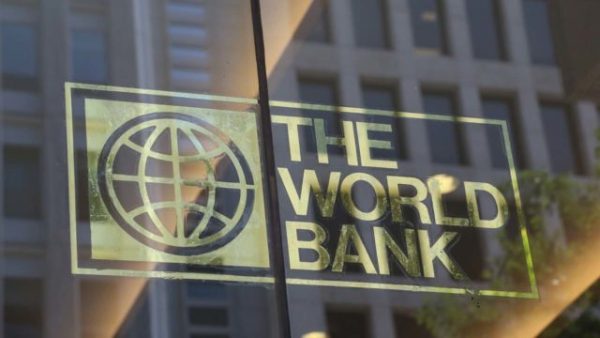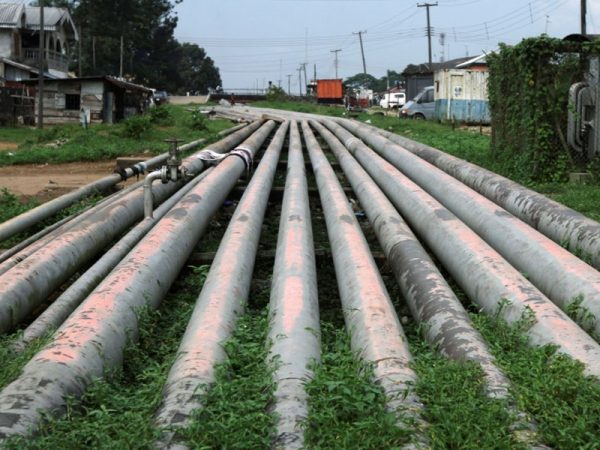Nigeria’s COVID-19 management to determine level of recession – World Bank
 Following the outbreak of COVID-19 in Nigeria, it has been projected that the three tiers of government could lose more than N2tn in revenues. Giving this huge revenue deficit, the World Bank says the extent of contraction in the economy would be determined by how Nigeria is able to manage the pandemic.
Following the outbreak of COVID-19 in Nigeria, it has been projected that the three tiers of government could lose more than N2tn in revenues. Giving this huge revenue deficit, the World Bank says the extent of contraction in the economy would be determined by how Nigeria is able to manage the pandemic.
Nigeria’s ability to contain the outbreak of the coronavirus disease would determine the extent of the post-COVID-19 recession in the country, the World Bank has said.
World Bank Country Director for Nigeria, Mr Shubham Chaudhuri, said this this in a telephone interview with our correspondent.
He noted that it had been projected that the pandemic would result in a shortfall of more than N2tn in the revenue accruable to the three tiers of government.
Chaudhuri explained that the estimate was arrived at from presentations by the Federal Government officials at different fora.
Nigeria and other countries in sub-Saharan Africa are already heading for imminent recession, going by projections in the latest edition of Africa’s Pulse, the World Bank’s twice-yearly economic update for the region.
The report which was released on Thursday predicted a sharp fall in Nigeria’s real Gross Domestic Product due to persistently weak growth and investment.
With COVID-19 projected to cost Nigeria and other countries in the sub-Saharan Africa between $37bn and $79bn in output losses, growth in the region is expected to fall sharply from 2.4 per cent in 2019 to -2.1 to -5.1 per cent within the year.
“Growth is expected to rebound in 2021 but to remain below its 2019 level in many countries, suggesting that the COVID-19 outbreak will continue to disrupt economic activity in the region in 2021,” the bank said.
However, Chaudhuri said a lot would depend on Nigeria’s ability to contain the outbreak.
The World Bank country director pointed to two factors – the severity of the outbreak in Nigeria and the measures implemented by government to mitigate the impact of the pandemic – as what would determine the lot of the country.
He said, “The global economy is going to contract, and as a result, Nigeria is looking at a contraction.
“Nigeria’s ability to contain the COVID -19 outbreak will determine the size of the contraction in the country.”
He canvassed the implementation of fiscal measures that would protect the most vulnerable members of the society.
Chaudhuri stressed the need to protect small and medium- scale businesses from shocks occasioned by the COVID -19 pandemic.
He said, “The Federal Government and the states should look at protecting livelihoods and the Small and Medium Enterprises at the community level.
“The immediate task is containing the outbreak and providing fiscal stimulus for the economy.”
Nigeria needs more funds to surmount the impact of the pandemic, according to the World Bank.
The decline in the price of crude oil has already forced the Federal Government to review the budget.
The country has also approached the World Bank, the International Monetary Fund and the African Development Bank for a fresh loan totalling $6.9bn.
Specifically, Nigeria is seeking $3.4bn from the IMF, $2.5bn from the World Bank and $1bn from the AfDB.
Already the IMF had said its executive board would soon meet to decide on the loan.
The World Bank had in February approved $2.2bn for six projects in Nigeria.
Asked if the Bretton Woods institution would approve the fresh $2.5 loan sought by Nigeria, Chaudhuri said the bank’s board would decide on it.
He said the board would have to be convinced that the loan would serve the needed purposes before approving it.
Chaudhuri said, “In the context of the current crisis, Nigeria needs more funding.
“If we see the need for additional financing, we will do our best.
“The board will have to be sure of what the loan is to be used for.”
Latest figures released by the Debt Management Office revealed that Nigeria’s total public debt portfolio stood at N27.4tn as of December 31, 2019.
There are misgivings over the steady rise in the country’s debt portfolio but the World Bank observed that the debt profile was relatively low at 20 per cent of the GDP.
Chaudhuri noted that the problem was in the high cost of debt servicing.
He said, “Nigeria’s public debt is approximately 20 per cent of the GDP and that is actually a relatively low figure.
“What is more important is what the money is being used for.
“What is very high in Nigeria is the debt service relative to revenue.
“Also, there is a need to make sure that the debt is transparent, and that funds received as loans are used for the right things.”
Statistics obtained from the website of the Central Bank of Nigeria indicated that Nigeria spent $1.12bn as external debt service payment, between January and October 2019.
The director explained that the World Bank had yet to decide on the application for debt relief by Nigeria and other African countries.
“All the African countries have applied for debt relief but there is no decision on it yet.”
The World Bank Group and IMF are to present a bilateral debt relief approach for endorsement at the Development Committee virtual meeting of Governors on April 17.
The World Bank, in Africa’s Pulse, had also observed that Nigeria would be among countries hardest hit by the shock arising from the COVID -19 pandemic.
The World Bank noted that the fiscal crunch in Nigeria might be worsened by an increase in external borrowing costs.
It noted that the plunge in oil prices and the dislocation of global capital markets had come along with a sharp increase in sovereign bond spreads of oil producing countries, adding that increased costs of borrowing would further worsen debt sustainability prospects.
Besides the drastic reduction in oil revenue, it was also projected that Nigeria would witness a decline in Foreign Direct Investment, aid flows and remittances, especially if it took a longer time for the source countries of these inflows to reignite their economic activities.
The World Bank advised that Nigeria and other African countries should not necessarily emulate the strategies implemented by advanced countries in responding to the pandemic.
Noting that the informal sector accounted for 89.2 per cent of all employment in Nigeria and other countries in sub-Saharan Africa, the report said many informal workers depended on daily incomes.
A prolonged lockdown would put the subsistence of households at risk, it added.








